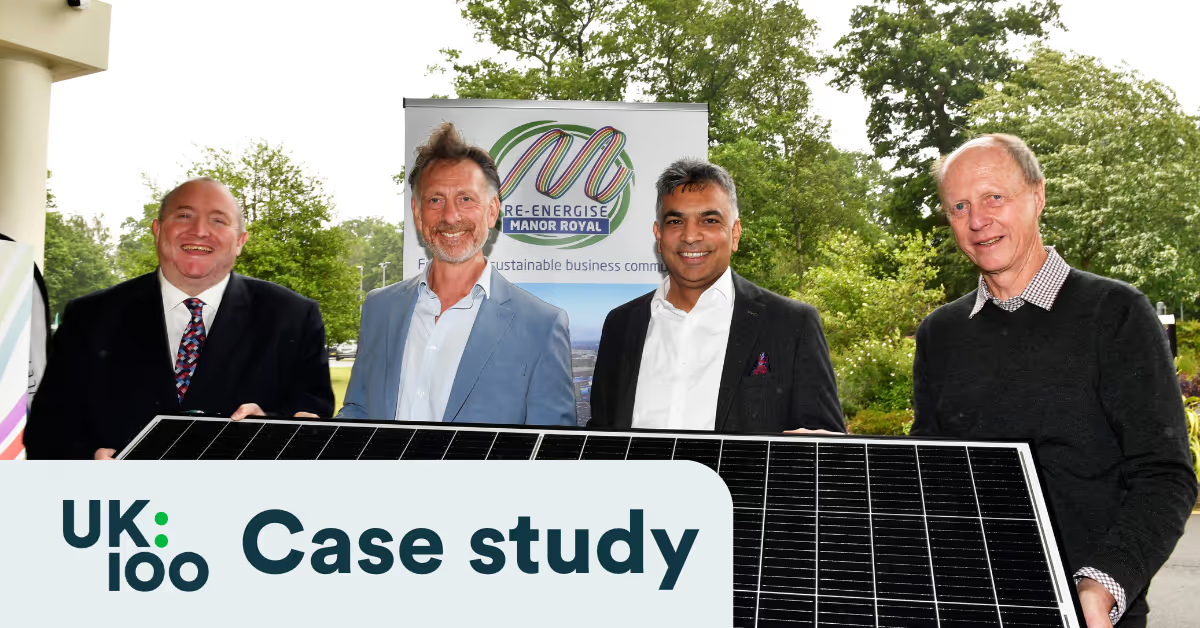
.svg)
At the end of January, I spoke at a UK100 conference which brought together the Department for Business, Energy and Industrial Strategy, Leeds Climate Commission and UK100 to discuss how local authorities can be empowered to create a local energy system which is fit for purpose for its residents and meets climate change objectives.
The power to make this change is now well and truly with local authorities and with the right funding, from either private investment or central government, there are many ways they can position themselves as a leader in this shift.
It is well documented that the energy system in the UK has moved from centralised to decentralised power, and now more than a quarter of the electricity consumed across the UK comes from renewable sources.
This is one way we can shift to a cleaner, and greener economy, but more still needs to be done to meet climate objectives as well as the future increase in demand for electricity from the electrification of transport.
Siemens has the products, engineering know how and skills to be able to do this. From transmitting the electricity produced from a windfarm, to making sure it comes out of a plug socket we can help.
But we also know that a one size fits all approach isn’t the right way to go. Each local authority will have its own set of challenges and the options for generating their own electricity will depend on this.
What we do know is that risk is not something any local authority has the appetite, or finances to take on. De-risking a project and providing a clear business case, which may attract private financial backing will give local authorities the confidence to invest. Using clear examples of where there have been cost savings, emissions reduction and the time it would take to pay back the project is vital.
We’re currently working on an EU funded, Horizon 2020 project called Triangulum in Manchester. The energy strand is looking to create innovation to make the city’s Oxford Road corridor a ‘Smart Quarter’, with three key partners Manchester City Council, University of Manchester and Manchester Metropolitan University.
The aims of these innovations are to reduce energy bills and carbon emissions, flatten peak demand on the power network and increase the use of renewable and low carbon energy within the city.
Projects such as Triangulum will not change the world alone though. They need to be scaled up across a whole city to have an impact. Our conservative estimates show that if one part of the project, the Central Controller, were to be scaled across Manchester, upwards of 42,000tCO2 could be saved each year – the equivalent of taking 18,0001 cars off the road.
But success isn’t just about selling technology, although that is helpful for my business. It’s about an attitude shift and how people interact and adapt these technologies and systems. Just think about how you consume energy in the home – you know that you should turn the lights off when you leave a room as it will cost you money, that servicing your boiler will make it more efficient. Doing this also means emissions aren’t being created. But, when you do this on a much larger scale – across a hospital, or even a city, the benefits are much greater.
But we need to bridge the gap between small scale projects, such as Triangulum, and larger city and even county wide projects. We know that 85% of the kit we will need for a smart system is in the ground today – we’re just not using it efficiently. That could be because there isn’t the confidence to invest – but we need to change that if we’re going to decarbonise at the pace needed to meet the goals set.
The latest initiative from BEIS, which builds on its funding of Local Energy Strategies developed by LEPs and local authorities over the last couple of years, is the allocation of £4.8M to create five Local Energy Hubs across England. These Energy Hubs will provide additional capacity for LEPs to take a more active role in the area’s energy ecosystem, addressing the challenges and commercialising the opportunities related to energy generation, storage, distribution and supply (including heat networks). This is implicitly underpinned by the Industrial Strategy Grand Challenge of achieving clean growth.
Local government is in a great place to enable this transition and we can together work with these Energy Hubs to create an energy action plan which would provide the business case to de-risk investment, as well as giving them a bespoke plan for their communities.
Forward thinking local authorities who understand that working together across public and private sector boundaries are the only way to address the grand challenges set in the Industrial Strategy. The provision of energy doesn’t stop at county borders and making sure all parts of the country are looking at what they can do to enable their communities to play a part in the energy transition will be the way forward.
.svg)


.png)




